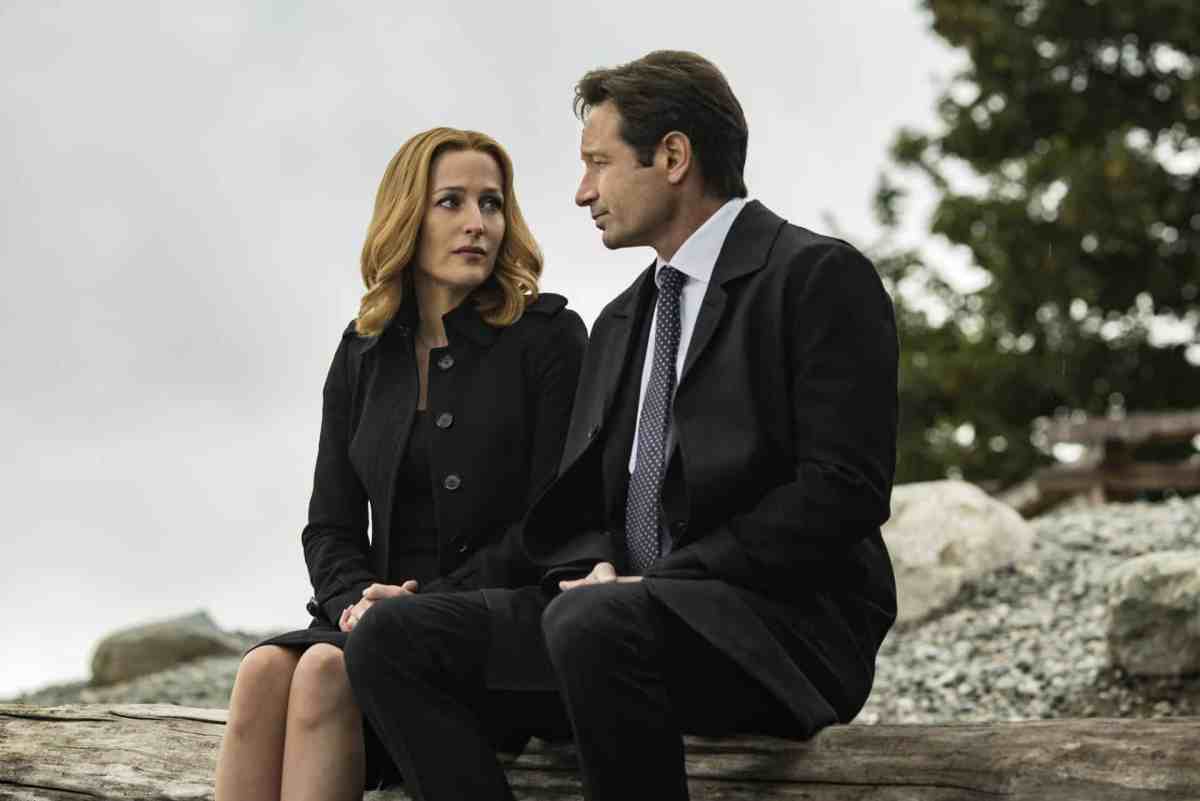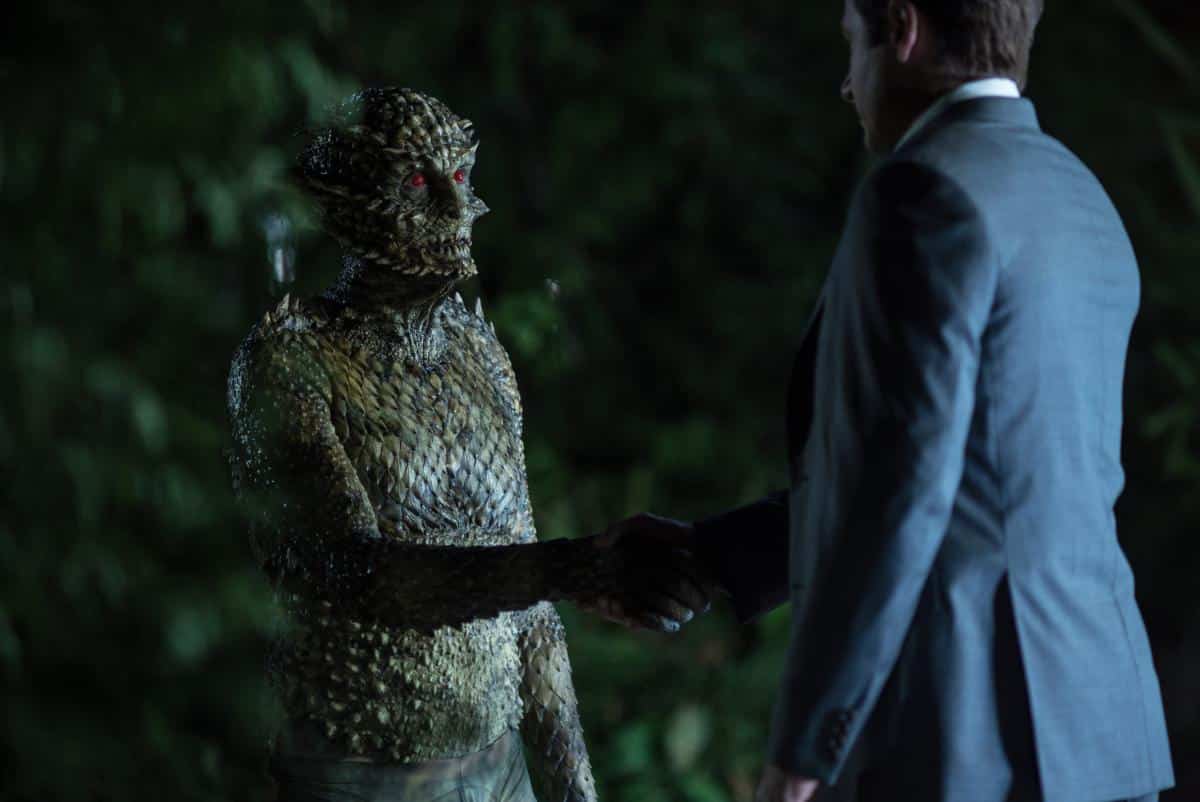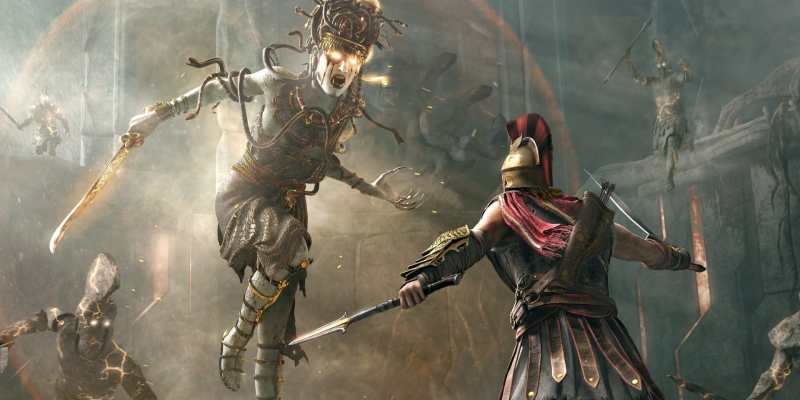This article contains mild spoilers for the Assassin’s Creed series, not so much The X-Files.
If The X-Files has taught me one thing, it’s that some people don’t know when to quit. I’m not talking about Fox Mulder’s perpetual pursuit of “the truth,” but creator Chris Carter’s insistence on shoehorning his alien conspiracy storyline into every one of the show’s 11 seasons. It was fun at first, getting a glimpse of some shadowy extraterrestrial plan; fans, myself included, would snap up these tidbits of information, endlessly speculating what the aliens’ endgame was.
But three or four seasons later, the appearance of the Cigarette Smoking Man or Brian “Shao Kahn” Thompson was nothing to celebrate. It was the unwelcome signal viewers were going to be subjected to yet another chunk of the show’s meandering conspiracy, instead of the mostly superior monster-of-the-week episodes. Every season finale, I hoped that the Little Green Men would realize just how awful humanity was and clamber back into their UFOs. Instead, each season added layer upon terrible layer to the X-Files mythos, like some out-of-control oyster.
It’s that same plot fatigue that pervades the Assassin’s Creed series, and it’s time Ubisoft put a stop to it. Like the X-Files’ alien arc, the story of an age-old struggle between the Assassins and Templars was, at first, captivating. It made you privy to ancient secrets, not a lone protagonist but one of many fighting to free the world; throwing historical figures into the mix was the icing on the murder cake. And it was enough of a distraction to make you overlook that, through the Animus, you were experiencing events second- or even third-hand.

However, as the Assassin’s Creed series has progressed, the games have become increasingly mired in their own mythology, to the point where it seriously impinges on your enjoyment of these games. Ubisoft doesn’t have its own Chris Carter, the last of Assassin’s Creed’s creators having left after Assassin’s Creed Syndicate. But someone at the company has a dogged refusal to let the sprawling backstory die.
Like The X-Files, there have been multiple opportunities for Assassin’s Creed to put the whole framing story to bed, the conclusion of Assassin’s Creed III being one obvious jumping-off point. But the mythology has continued to balloon, with additional ancient artifacts thrown into the mix, hitherto unmentioned allies and enemies, with no ending in sight.
The presence of the virtual reality Animus in Assassin’s Creed is always going to be a problem. At the most basic level, it means your actions can have no consequences for the in-game world. You’re not really wreaking vengeance upon an industrial-era sweatshop owner; you’re playing a game within a game. The last three Assassin’s Creed games have stepped back from the brink a little, but they’ll still pull you out of the past to impart some modern-day knowledge you really don’t care about, a hugely jarring experience.
But the Animus isn’t the only reason Assassin’s Creed’s mythology needs to go; it holds the series back in other ways. While the idea of the Templars secretly running the world is an intriguing one, it’s also a little insulting, particularly when you see the concept woven into later Assassin’s Creed games. People can be cruel enough without some secret organization behind them, without the excuse they’re hunting for some fragment of an ancient civilization; saying otherwise is letting humanity off easy.

Origins, Odyssey, and Valhalla all wisely took a step back from the series’s “big picture,” but the usual Precursor artifacts rear their ugly glowing heads. On top of this, there’s a massively contentious scene where, regardless of your character’s sexuality, they have a child with a partner of the opposite sex. Why? Just for the sake of servicing Assassin’s Creed’s long game, even though the events you’re experiencing are strictly virtual. Instead, it’s Assassin’s Creed’s personal stories that really resonate, when Kassandra’s helping out some hapless islander or fighting to find her father.
Protecting the weak? Absolutely. Revenging yourself upon those who have wronged you? Yes, please. Tracking down an ancient staff for the sake of future generations? I’ll give it a miss. Except that’s a choice you’re not offered; even if you can pretend your actions have real consequences, Odyssey tells you exactly where Kassandra will end up.
For all its extraterrestrial sins, The X-Files did acknowledge the existence of the supernatural. The series featured a liver-eating serial killer who could crawl through air vents, a trapeze artist who could vomit poisonous spiders, and a creature with tree bark for skin, only one of which I’ve made up. But by sticking to the premise that anything magical must be using ancient technology, Assassin’s Creed has walled off some of history’s most interesting legends and monsters.
Odyssey begs for an encounter with some giant aquatic beast, but the most you get is sharks. Contrast that with Sea of Thieves, which is happy to unleash the Kraken, the Megalodon, or both, leading to some glorious encounters. Odyssey just managed to squeeze Medusa in, but like Valhalla, the series rarely does more than dip its toes into local mythology, because doing so would mean breaking free of the restrictive long-term narrative.

Both The X-Files and Assassin’s Creed cry out for closure. But their respective mythologies have become so horribly convoluted that there’s no easy way to draw things to a close, and with the cancellation of The X-Files, those many, many threads will remain forever dangling.
There’s a lot to love about the Assassin’s Creed series, but there’s no satisfaction in watching each title add another layer to the fetid plot lasagna. Instead, joy comes from silently meting out some much needed justice, kicking yet another mercenary down a hill, exploring the world, or any number of other activities that have no bearing on Assassin’s Creed’s overarching story. On top of that, it risks making the series impenetrable to newcomers.
So, just stop. Start the next Assassin’s Creed anew, forget about Juno and Pieces of Eden, the Staff of Hermes, the Axe of Zantos, or whatever MacGuffin was going to factor into the next game. Forget about the modern-day nonsense that wrenches you away from the fun of being an assassin and ultimately makes your actions meaningless.
I’d hate to see Assassin’s Creed go the way of The X-Files, but unlike Fox Mulder or Chris Carter, sometimes you have to know when to let go.
